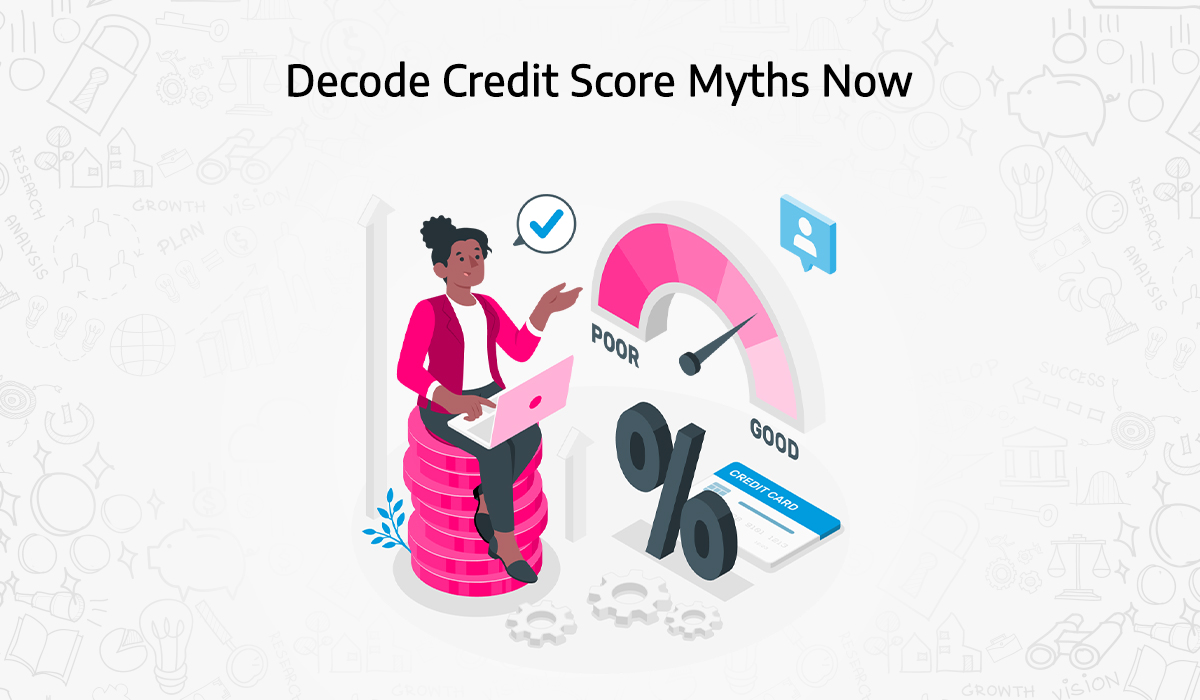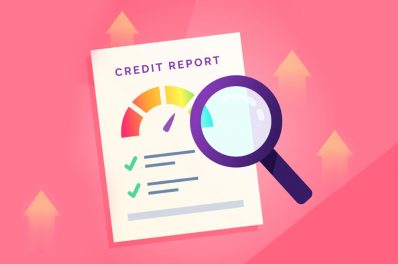
Debunking Credit Score Myths
Building and maintaining a good credit score is extremely crucial for your financial profile. While you may think that you fully understand your credit score and credit report, there are some myths, which need to be addressed. Some of these may just cloud your judgement and lead to wrongful self-assessment.
We managed to put together 5 such common credit score myths in order to bring clarity on the concept and workings behind your credit reports.
Credit Score Myths & Truths
Myth 1 – My personal information affects my credit score.
This is absolutely incorrect! The truth is that your credit score is computed based on the data in your credit report. Your credit report is fetched from popular credit agencies like Transunion CIBIL, Equifax or Experian.
The personal information in your credit report is limited just to your name, addresses, employer details, and information you may have shared with your bank. Your credit file is free from personal details like your likes or dislikes, income details, race, marital status, and likewise.
Myth 2 – If I check my credit report, it will affect my credit score.
Another myth around credit score is that if you check your credit report online, it will bring down your credit score by a few points. Well, this myth is partially true.
Let us explain. Whenever you apply for a loan or a credit card, the lender performs a credit check on your behalf to procure your credit profile. This is called a hard inquiry and it does land up on your credit report affecting your score.
However, if you check your own credit score online through a credit agency’s website or any other portal, it does not affect your score in any way. It is advised to check your credit score periodically to have a better grip on your finances.
Must Read: What is a Credit Score? How to Check, Improve and Calculate Credit Score?
Myth 3 – My credit score is affected by my income.
Most people think that having a higher income would guarantee a high credit score. This is incorrect. The only variables that impact your score are payment history, credit utilization rate, debts, length of credit history, frequency of new credit, credit mix, etc.
Myth 4 – You can share your credit score/history with your spouse.
This is a common myth, people believe that their credit history and score can be merged with that of their spouse/ partner. This is incorrect!The logic behind this is that your credit report and score individually belong to you and there are no joint stakeholders in this.
Myth 5 – I should not take debt as it can affect my credit score negatively.
Another common myth, taking a debt or a loan can bring down the credit score or affect it negatively. Incorrect! Taking debt is healthy and considered good to build up your credit score.
However, taking too much debt or taking debt too frequently is harmful for your credit score. If you maintain a healthy mix of different types of debts and are managing all of them responsibly, lenders will consider you as a careful and low-risk borrower.
This will result in positively building your credit score. We hope we were able to clear the air behind these credit score myths. Improving and maintaining a healthy credit score is important, more so when you are planning to apply for a personal or a business loan.
Follow the link to check your credit score here and check your eligibility for a pre-qualified personal loan offer today.
For any queries, find us on Facebook, Instagram, LinkedIn, Twitter, or WhatsApp.You can also reach us at hello@clix.capital.com or call us at +91-120-6465400.T&C Apply*.







